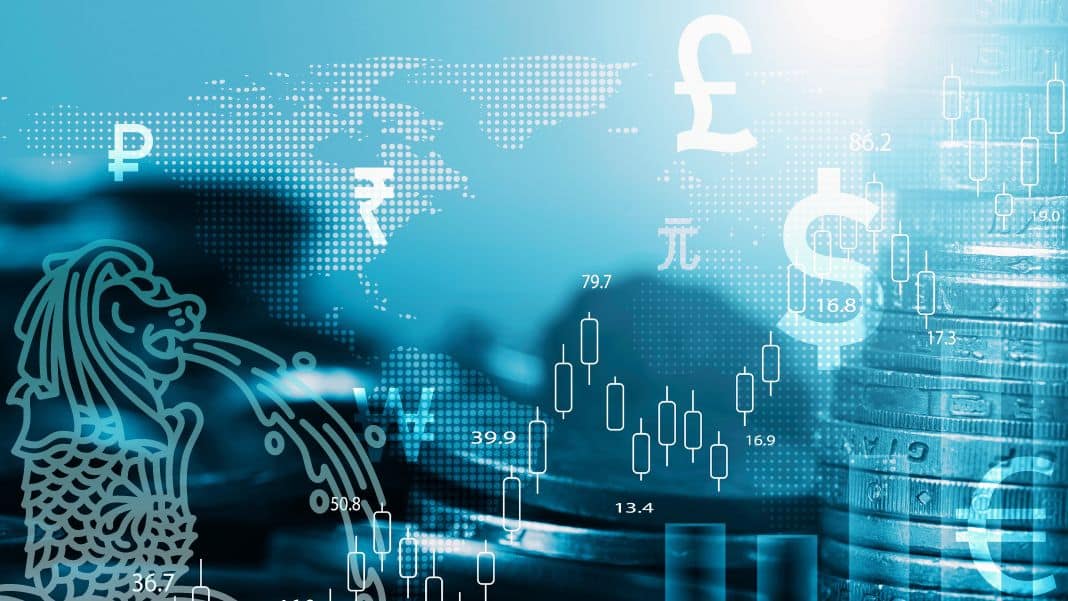Forex trading has become an efficient mode of transaction in almost all countries. Due to the platform’s growing popularity, many novice individuals look forward to investing in forex trading in Singapore. However, budding investors can’t find the right forex traders and FX broker platforms online. The online FX broker must abide by the rules imposed by the Singaporean government while transacting.
The Singaporean government implemented regulations to make crypto trading in Singapore easy and hassle-free, even though it may initially seem odd and take some time for people to get used to them. Because cryptocurrencies will be regarded as capital market goods, the owner of a crypto account should always make a will that includes the name of their crypto account; otherwise, no one would be aware of the crypto account they were holding. As discussed in the article, traders can make their trading successful by following several strategies.
Understanding the Basics
All of the world’s currencies are traded against one another on the decentralized global market known as forex, and dealers benefit or lose money depending on how much the value of the currencies fluctuates. Foreign Exchange Market, FX, and Currency Trading Market are other names for the forex market. The foreign exchange market, also known as the forex market, is where money combinations are traded.
The finance industry’s biggest and most liquid exchange is this one. The purchasing, selling, swapping, and speculation of assets are all permitted on this market. Additionally, it makes currency conversion possible for businesses and commerce globally. The forex market sees significant buying activity and is available twenty-four hours a day, five days a week (including most holidays).
Currency combinations are mentioned according to their bid (buy) and ask rates. (sell). In exchange for the quote or counter currency, the forex dealer will purchase the base currency from you at the offer price. The amount at which the broker will sell the base currency in return for the quote or counter currency is known as the “ask,” also known as the “offer.”
As there are currencies on the globe, there are an equal number of currency combinations. As currencies arrive and go, the overall quantity of currency pairs varies. The daily amount of trading for each currency pair is used to categorize them all. Some currency pairs are EUR/USD, USD/CAD, AUD/USD, and GBP/USD.
Setting up a Trading Account
Finding a trustworthy dealer is crucial before using the trading platform offered in Singapore because of the country’s strict currency market regulation. By doing this, the trader can be certain they’ll enjoy a suitable, user-friendly experience that meets their specific requirements. Financial institutions with activities in Singapore and trading platforms must adhere to the Monetary Authority of Singapore’s growing financial regulation growth (MAS Regulated Forex Brokers).
Different types of accounts are provided for day trading, weekly trading, or even long-term trading. The customer can choose the type of account that suits their needs best. The Fx broker Singapore provides their traders with a demo account to help them understand the concept of trading before using the live account. The customer should also check the deposits and withdrawal methods offered by the fx broker platform. Some brokers provide only a limited banking method, while others accept deposits from every source.
Developing a Trading Plan
A trading strategy basically serves as a roadmap to help dealers throughout the trading process. It establishes the parameters for entering trades, locating marketplaces, closing trades, and managing risks along the way for traders. Accountability is ensured by the trading plan, which also helps dealers stay focused on their individual strategies. The step-by-step process for developing a trading plan is discussed.
Identifying Trade Set-ups
The logical method addresses the question, ‘How to recognize trade set-ups?’. Price support and resistance may be combined with trend lines, chart patterns, Fibonacci levels, moving averages, Ichimoku Clouds, Elliott Wave Theory, emotion, the use of principles, etc. With the aid of this first stage in the trading strategy, traders can concentrate only on a few scenarios with which they are familiar. Then, depending on their chosen trade setups, traders can search for trading opportunities.
Choosing a Reliable Trade Setup
The fundamental step in any trading procedure is the transaction setup. Before that, consider the analytical method as the event that initiates the transaction setup. The trader may trade the breakout, wait for a pullback, or combine breakouts and pullbacks only after the chart pattern has successfully played out. An illustration would be the trader viewing a consolidation pattern (listed in the analytical approach as a chart pattern).
Managing Risk
Any individual intending to trade any market must make this decision. Most trading teachers will use percentages like 1%, 2%, or even up to 5% of your account’s total value as the risk per transaction, but how comfortable you are with these figures depends heavily on your experience level. It makes sense to use the smaller percentage risk levels for newer dealers because they are naturally less confident in themselves due to their lack of experience and expertise with either trading in general or with a new system.
Conducting Technical Analysis
Technical analysis studies past price movements to spot trends and estimate the likelihood of future market movements using technical studies, markers, and other analysis instruments. A technical study of a market can assist you in deciding when and where to exit a market, which is far more crucial to know.
Technical analysis is founded on the idea that price movement is not entirely random despite the chaos of the markets and the fact that nobody can predict what will happen next. In other words, the mathematical disorder Theory establishes that recognizably ordered patterns with a propensity to recur exist within a state of disorder.
In nature, we see this kind of erratic behavior in the form of weather predictions. For instance, the majority of traders will acknowledge that it is impossible to anticipate precise price changes. Therefore, being right or incorrect does not affect whether you are a good trader. It all involves calculating probabilities and entering trades when the chances are in your favor. Forecasting market direction and when/where to join a trade are part of calculating odds, but figuring out your risk-to-reward ratio is just as crucial.
Following Market News and Events
Consider which news occurrences are worth trading before creating a “Trade the News” plan. ‘Which news items should I trade?’ is a question every trader wants to be able to respond to. The main event risks that have a significant effect on the major currencies are things that forex traders should become acquainted with. The trade news is very important because it can raise volatility in the near term, so it only makes sense that the user would only trade based on the news with the greatest potential to move the exchange market.
The relative significance of this occurrence may alter depending on what’s happening around the globe. For instance, it might appear that nobody is concerned about interest rate choices at one point in time and that they are the primary topic at another. For this reason, it’s critical to keep up with current events and understand what the market is emphasizing. It is also important to follow if any new trading trends or regulations are introduced in the Singapore forex market, and staying up to date will help in many methods.
Learning from Mistakes
Although each stage of the trading plan is crucial, the strategy as a whole will fail if risk management is neglected. The extent to which a trader is prepared to establish stop losses in order to restrict negative risk will depend on the risk tolerance they have identified for themselves. Our analysis of more than 30 million live transactions at DailyFX found that traders with a minimal risk-to-reward ratio of 1:1 were three times more likely to make a profit than traders with no set risk ratio.
Keep Reading
How To Compare Forex Brokers Online- Forex Broker Comparison
Conclusion
Retail CFD trading is entirely lawful in Singapore, and residents are free to use any dealer of their choosing—not just those situated there. However, those who desire to offer their services locally must be certified and granted a license by the Singapore Monetary Authority. (MAS). Singapore has been a significant base in recent years in terms of both active customer numbers and produced profits, according to financial data published by major trading companies working in markets around the globe. Based on information from significant FX/CFD traders, Finance Magnates Intelligence reports that in Q4 of last year, over 50,000 individual buyers actively speculated in the Singapore FX/CFD market.












